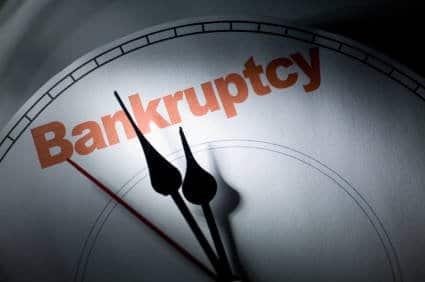Filing for bankruptcy is a major financial step, and it’s not uncommon to have second thoughts. If you’ve recently paid for a bankruptcy filing but changed your mind, you’re not alone—and you may still have options. The key is knowing where you are in the filing process and what steps to take next.
Here’s what to expect if you decide to cancel your bankruptcy after paying an attorney or starting paperwork.
Have You Officially Filed With the Court?
The answer to whether you can cancel a bankruptcy filing depends largely on whether your petition has already been filed with the court.
1. If You Haven’t Filed Yet
If you’ve paid an attorney but haven’t submitted any documents to the court, the bankruptcy process technically hasn’t started. In this case:
-
You can still change your mind and decide not to proceed.
-
You’ll need to contact your attorney immediately to discuss the cancellation.
-
Your refund eligibility depends on how much work the attorney has already done.
If no paperwork has been prepared or submitted, you may be able to recover most of your payment—though the attorney may deduct fees for time already spent on consultations or document prep.
2. If You’ve Already Filed
If your attorney has filed your case with the bankruptcy court, it’s more complicated.
-
You must request to voluntarily dismiss your bankruptcy with the court.
-
Chapter 13 cases can typically be dismissed voluntarily unless they were converted from Chapter 7.
-
Chapter 7 cases require a court’s permission for dismissal and must show “sufficient reason.”
Common acceptable reasons include:
-
Receiving a financial windfall
-
Discovering an alternative debt solution
-
Realizing bankruptcy will harm your credit or personal goals
Ultimately, the judge must believe your dismissal won’t unfairly harm creditors.
What If You Paid But Didn’t Submit Paperwork?
One reader shared their experience of paying $1,500 to a bankruptcy attorney—but then changing their mind before any paperwork was filed. If you’re in this position:
-
Reach out to the attorney ASAP.
-
Be honest about your decision and request a refund.
-
Expect the attorney to retain a portion of the payment for services already rendered.
If only a few days have passed and no paperwork has been completed, you may have more leverage to negotiate a partial or full refund.
Tips for Requesting a Refund from a Bankruptcy Attorney
-
Be prompt in notifying the attorney of your decision.
-
Document your request in writing or via email.
-
Ask for an itemized invoice to understand any non-refundable charges.
-
Request a meeting if necessary to finalize the cancellation and sign off on paperwork.
Most attorneys acting in good faith will refund unused funds and close your case with minimal friction.
Final Thoughts: Know Your Rights and Act Quickly
Bankruptcy is a serious legal action, and changing your mind is understandable. But timing is everything. If you haven’t filed, you’re in a stronger position to cancel with minimal cost. If you have filed, consult your attorney about the proper procedure to formally withdraw your petition.
In either scenario, clear communication with your attorney is key. You may lose some fees, but in most cases, you won’t be forced to proceed with a bankruptcy you no longer want.
FAQs:
Can I cancel a bankruptcy after I’ve paid but before filing?
Yes. If your petition hasn’t been filed, you can usually cancel by informing your attorney and requesting a refund—though some fees may be retained.
Can I stop a Chapter 7 bankruptcy after filing?
You must ask the court to dismiss your case, and you’ll need to show valid reasons. The judge has the final say.
Will I get my money back if I don’t file for bankruptcy?
Possibly. Attorneys may deduct fees for consultations or prep work, but unused funds are often refundable if no official work has been done.
Can I dismiss a Chapter 13 bankruptcy?
Yes, in most cases—unless your case was converted from Chapter 7. You still need to notify the court formally.
How long do I have to cancel after paying a bankruptcy attorney?
There’s no set time limit, but the sooner you act—especially before paperwork is filed—the better your chances of recovering funds and stopping the process.










